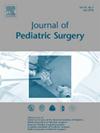Implementation of a Competency-Based Training Program in Pediatric Surgery: A Pilot Study
IF 2.4
2区 医学
Q1 PEDIATRICS
引用次数: 0
Abstract
Introduction
Current surgical trainees experience less autonomy in their training than prior generations. Intentionally integrating graduated autonomy into the educational development of fellows would enhance trainee competence while providing the safety net of fellowship programming. The objective of this study was to pilot a competency-based training (CBT) approach for pediatric surgery fellowship programs.
Methods
A CBT approach was developed at a single pediatric surgery fellowship program. Three goals were identified for the development of the CBT structure: 1) demonstrate flexibility for trainees to gain knowledge and skills at individualized paces, 2) readily identify and address knowledge gaps, and 3) facilitate increased autonomy for fellows while in training, in areas where competence has been successfully assessed. The CBT program consisted of five components: operative evaluations, a communication assessment tool (CAT), entrustable professional activities (EPAs), oral exams, and video reviews. Once a fellow completed the minimum requirements of each component, they proceeded to the final review at the clinical competency committee (CCC) meeting. For this pilot, we tracked the changes that were made to the program over the first few years as well as progression of the first six fellows and their participation in the various components.
Results
Between 2017 and 2023, six pediatric surgery fellows were evaluated by fourteen pediatric surgery faculty. Three fellows progressed through the pilot program with three procedures (Laparoscopic Appendectomy, Laparoscopic Inguinal Hernia Repair, and Laparoscopic Pyloromyotomy), while the other three fellows progressed through the program with these three initial and two additional procedures (Laparoscopic Gastrostomy Tube Placement and Open Malrotation Repair). The median number of each component completed was: 5 CATs, 101 operative evaluations, 4 oral exams, and 3 video reviews. Fellows achieved competency for 1–4 procedures. From semi-structured interviews, fellows appeared overall satisfied with their experience of the CBT program, stating that these additional sets of tasks and requirements were a helpful thought exercise, provided an extra layer of structure to the curriculum, created a culture of independence and autonomy, and gave added purpose to the first year of training. The principal strength of the program was the structured format leading to graduated autonomy. All fellows reported feeling very prepared to move into a faculty role following graduation from fellowship training.
Conclusion
Competency-based training may allow for identification of specific gaps in knowledge, skills or abilities and support progressive autonomy among trainees prior to fellowship graduation. Generating further validity evidence and engaging in implementation research are necessary for quality improvement and dissemination of the program.
在儿科外科实施以能力为基础的培训计划:一项试点研究
与前几代人相比,当前的外科学员在培训中经历的自主权更少。有意地将毕业后的自主权纳入研究员的教育发展,将提高受训人员的能力,同时提供研究金方案编制的安全网。本研究的目的是试点能力为基础的培训(CBT)方法的儿科外科奖学金计划。方法CBT方法是在一个儿科外科奖学金项目中发展起来的。研究确定了CBT结构发展的三个目标:1)为受训者以个性化的速度获得知识和技能提供灵活性;2)容易识别和解决知识差距;3)在成功评估能力的领域,促进培训人员在培训过程中增加自主权。CBT计划由五个部分组成:操作评估,沟通评估工具(CAT),可信赖的专业活动(EPAs),口试和视频复习。一旦研究人员完成了每个组成部分的最低要求,他们就会在临床能力委员会(CCC)会议上进行最终审查。在这个试点项目中,我们跟踪了项目在最初几年的变化,以及前六名研究员的进展和他们在各个组成部分的参与情况。结果2017 - 2023年,14家儿科外科院系对6名儿科外科研究员进行了评估。三名研究员通过三种手术(腹腔镜阑尾切除术、腹腔镜腹股沟疝修补术和腹腔镜幽门肌切开术)完成了试点项目,而其他三名研究员通过这三种初始手术和两种附加手术(腹腔镜胃造口管置入和开放式旋转不良修复)完成了项目。每个组成部分完成的中位数为:5个cat, 101个手术评估,4个口头检查,3个视频复习。研究员达到1-4个程序的能力。从半结构化的访谈来看,学员们对CBT项目的体验总体上是满意的,他们表示,这些额外的任务和要求是一种有益的思维练习,为课程提供了额外的结构层,创造了一种独立自主的文化,并为第一年的培训提供了额外的目标。该计划的主要优势是结构化的格式导致毕业自主权。所有的研究员都报告说,他们已经做好了准备,准备在完成奖学金培训后进入教师岗位。结论基于能力的培训可以识别出知识、技能或能力方面的具体差距,并支持受训者在奖学金毕业前的逐步自主。产生进一步的有效性证据和参与实施研究是提高项目质量和传播的必要条件。
本文章由计算机程序翻译,如有差异,请以英文原文为准。
求助全文
约1分钟内获得全文
求助全文
来源期刊
CiteScore
1.10
自引率
12.50%
发文量
569
审稿时长
38 days
期刊介绍:
The journal presents original contributions as well as a complete international abstracts section and other special departments to provide the most current source of information and references in pediatric surgery. The journal is based on the need to improve the surgical care of infants and children, not only through advances in physiology, pathology and surgical techniques, but also by attention to the unique emotional and physical needs of the young patient.

 求助内容:
求助内容: 应助结果提醒方式:
应助结果提醒方式:


